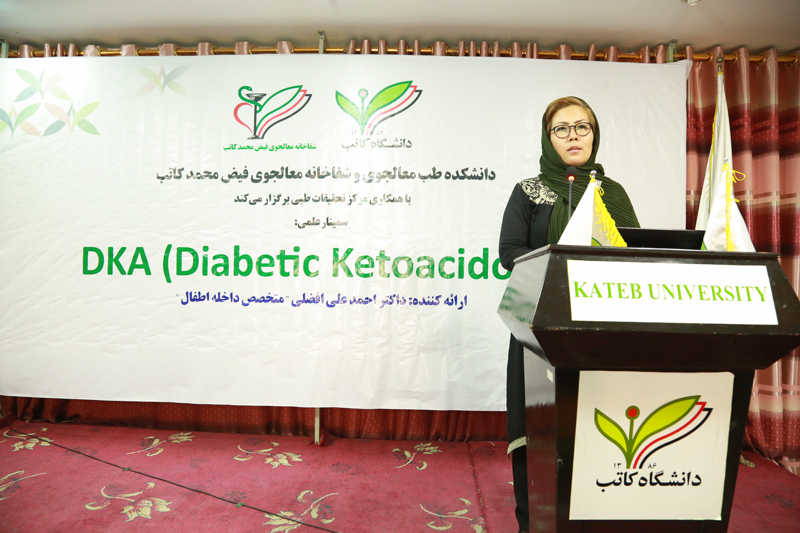DKA (Diabetic Ketoacidosis) Scientific Seminar on June 10 and 17, 2019 in the conference hall of Barchi Branch and Master Branch. This seminar was held by Kateb Research Center in collaboration with Medicine Faculty and Kateb Hospital. This 2-day seminar was taught by Professor Ahmad Ali Afzali, Professor of the Faculty of Medicine, and doctor at Kateb Hospital. The purpose of holding the seminar was to raise the level of knowledge of students about diabetic diseases, in which a large number of students participated in both branches.

DKA
Diabetic ketoacidosis (DKA) is an acid exist in your blood. It can happen when your blood sugar is too high. It can be life threatening, but it can take hours. You can treat it and prevent it from happening. This occurs when blood sugar levels are very high and insulin is low. Our body needs insulin to use the glucose in our blood. In DKA, glucose cannot enter the cell, so it builds up, resulting in high blood sugar. This condition occurs when your body is unable to produce enough insulin, without enough insulin, your body begins to break down fat. This process causes acids in the bloodstream called ketones to form and, if left untreated, can lead to diabetic ketoacidosis.
The seminar began with the recitation of verses of Holy Quran, then the national anthem was played and the program began. Mr. Afzali first spoke about whether anyone has information about these diseases and the consequences and effects of these diseases or not, a number of attendees gave brief information that they had about these diseases, then Professor Afzali said that unfortunately, the level of public awareness about these diseases is very low and in many cases no attention is paid to this issue. He then spoke in detail about diabetic diseases and the types of these diseases and the dangerous effects of these diseases, he talked about how a person can get this disease, and the person who gets this disease what should they do to prevent their illness from progressing so that his illness could be cured. At the end of the program, the participants asked questions that Professor Afzali answered.
Comment is not allowed